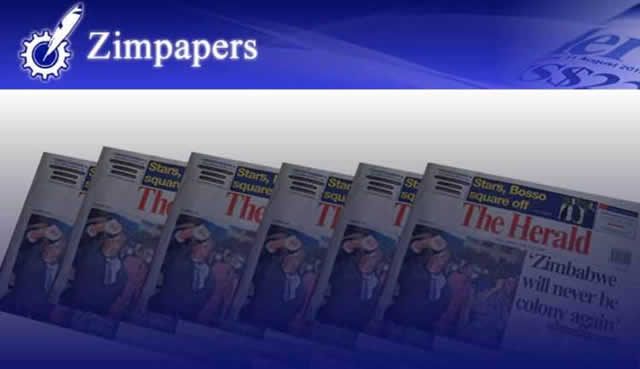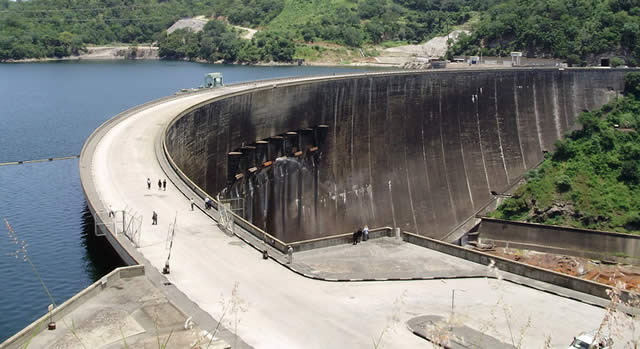EDITORIAL COMMENT: Chimurenga chronicles safeguard posterity

 Chairman Mao Zedong of the Chinese Communist Party in one of his writings says: “The people and the people alone are the motive force in the making of world history.” The people of Zimbabwe have partly fulfilled this through the First and Second Chimurenga. However, First Lady Amai Grace Mugabe, who is also Secretary for Women Affairs in the ruling Zanu-PF party, cautioned during her “Meet the People” tour in Murehwa, Mashonaland East Province, on Saturday that this history was under threat if people fail to give proper teaching and guidance to young people regarding contemporary political issues vis-a-vis the liberation struggle.
Chairman Mao Zedong of the Chinese Communist Party in one of his writings says: “The people and the people alone are the motive force in the making of world history.” The people of Zimbabwe have partly fulfilled this through the First and Second Chimurenga. However, First Lady Amai Grace Mugabe, who is also Secretary for Women Affairs in the ruling Zanu-PF party, cautioned during her “Meet the People” tour in Murehwa, Mashonaland East Province, on Saturday that this history was under threat if people fail to give proper teaching and guidance to young people regarding contemporary political issues vis-a-vis the liberation struggle.
She warned that as the harmonised elections were slowly approaching, the enemy’s latest tactic was to target teenagers with money and other freebies, since the majority of them would be first time voters in 2018. Whereas the young people that fought in the liberation struggle did so voluntarily, today’s youth pose a danger since they can easily derail the gains of that struggle, if enemy tactics succeed and they agree to be bought off.
To some people, this warning was nothing but politicking and reality on the ground is that there are thousands who think that the protracted war of liberation’s shelf life has come and gone and it is time Zimbabwe moved on. The economic challenges currently being faced are never analysed in their proper historical context.
This attitude problem is due in part to lack of education on why the liberation struggle was fought, coupled with the absence of primary historical sources that give a contextual framework on the Second Chimurenga as told by the people that participated — politically, militarily and/or as collaborators as the masses did.
The absence of such written materials and the political will to compile them systematically over the past three decades has created a huge gap, which the enemy is taking advantage of.
School curricula breezes through the subject, with lack of texts on the liberation struggle being a major impediment. Save for a few primary sources, the majority of writings on the liberation struggle is being done by Rhodesians and their Western kith and kin whose agenda is well known. Not only are they distorting the liberation war narrative, but the untruths they write are meant to diminish the value of that struggle and gullible young people will fall victim after being bought off. The living conditions of the majority of war veterans also compound the problem.
Thus we express our appreciation that some of the major stakeholders in the compilation of the liberation war narrative are now seized with the desire to record this important aspect of Zimbabwe’s history. In the past few weeks, we have seen the publication of excerpts of Chimurenga chronicles in the public media which is part of an ambitious project between the Ministry of Information, Media and Broadcasting Services, Zimbabwe Defence Forces, Zimpapers, Zimbabwe Broadcasting Corporation and war veterans.
The ongoing project is a departure from previous endeavours since it has started off by focusing on the pioneers of the liberation struggle.
It lays out the missing foundation in the narrative, since most of what is in the public domain is when the war of liberation was at its peak in the mid-1970s, with very little background. Apart from the nationalists, it had completely omitted the pioneers of the armed struggle, with an impression being given that the majority of people who fought in the sixties and early seventies had all passed on.
The fact that some of them are being tracked down to tell their stories means that the currently available revisionist history and its lies will be exposed.
People will now see how these men and women contributed toward Zimbabwe’s vision, including the answers to many unanswered questions on issues like the role of spirituality; ethnic differences and how they affected the struggle and its impact in contemporary Zimbabwe; female freedom fighters; the role of regional and international partners in the struggle and/or whether the struggle was hijacked from the pioneers by educated cadres, to name but a few.
We must appreciate that it was impossible for the freedom fighters to write their stories while they were fighting and from 1980 onwards, those that survived had to deal with numerous challenges, including the traumatic experiences they faced.
But now that the living are coming forward to tell their stories, it is incumbent upon Government, the ruling Zanu-PF party that waged the war of liberation and other stakeholders to ensure that the project is not only value for money, but that this it is well structured and well funded. This rich content will reorient Zimbabweans, especially the younger generations.
It is also a landmark phase in the compilation of primary data on the history of the Second Chimurenga. It might be a labour intensive and costly exercise, but the benefits accrued will outweigh these challenges, for a nation’s collective mind purpose cannot just be brushed aside.
According to a popular adage, winners tell their own story.










Comments